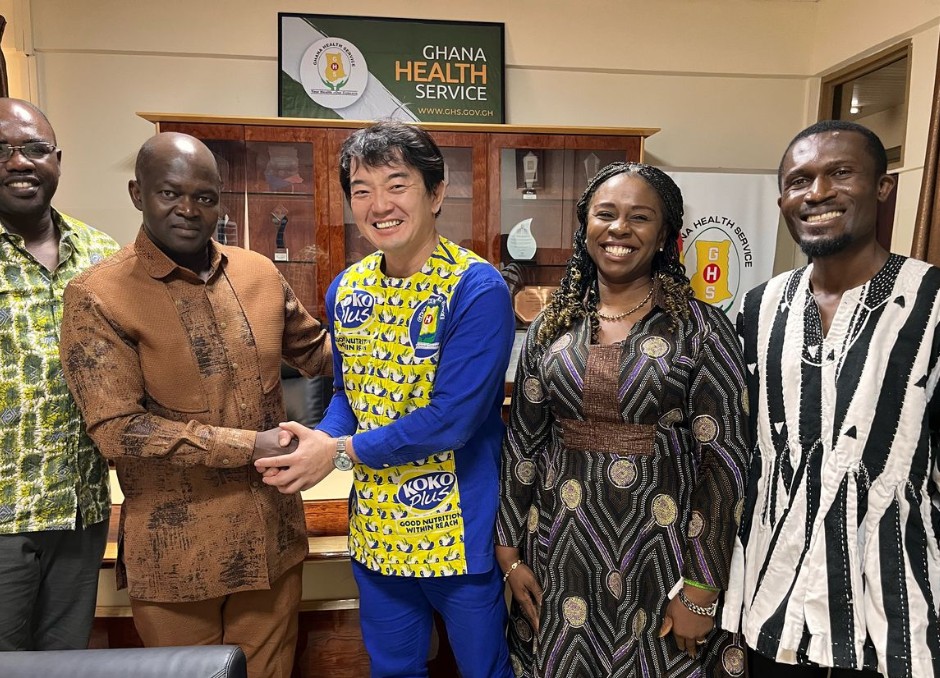In a strategic meeting that highlights the commitment to improve infants and young child nutrition in Ghana, Mr. Yusuke Takahashi, Country Director of the KOKO Plus Foundation, recently met with Professor. Samuel Kaba Akoriyea, Acting Director-General of Ghana Health Service, to discuss the expansion of the Ghana Nutrition Improvement Project.
The meeting was marked by substantive discussions focused on key areas of collaboration and centered on deepening the existing partnership between the KOKO Plus Foundation and the Ghana Health Service. By aligning institutional goals and resources, both organizations aimed to create a better framework for delivering nutrition interventions, using KOKO Plus®️ and nutrition education to improve nutrition and health outcomes in Ghanaian children.
Another objective was to develop a comprehensive strategy for scaling the Ghana Nutrition Improvement Project across all districts in Ghana, ensuring that no child is left behind. Recognizing that successful partnerships require continuous adaptation, both parties reviewed and updated the existing Memorandum of Cooperation and explored the different facets of nutrition interventions.
The economic implication of this partnership is significant. According to the Global Nutrition Report, malnutrition represents losses of 11 percent of gross domestic product annually in Africa and Asia. Each dollar invested in preventing malnutrition delivers an impressive $16 in return, highlighting the importance of such targeted interventions.
Still in the meeting, the two heads delved into various avenues to share the success stories from the project at international platforms like the Nutrition for Growth Summit and the Tokyo International Conference on African Development (TICAD), to inspire global support and potential replication of the ‘Ghana model’. Lastly, there were further discussions on strengthening the African Health and Wellbeing Initiative (AfHWIN), a collaborative effort between Japanese and the Ghanaian government dedicated to achieving sustainable Universal Health Coverage (UHC).
This partnership approach goes beyond traditional nutrition interventions. By implementing a Social and Behaviour Change strategy coupled with a market-based model, the KOKO Plus Foundation demonstrates how innovative, collaborative approaches can push improvements in public health nutrition.
The Foundation remains steadfast in its mission to combat child malnutrition, believing that every child deserves the opportunity to grow, learn, and thrive. Through strategic partnerships, innovative solutions, and a deep commitment to community welfare, we continue to work towards a future where no child suffers from nutritional deficiencies.












